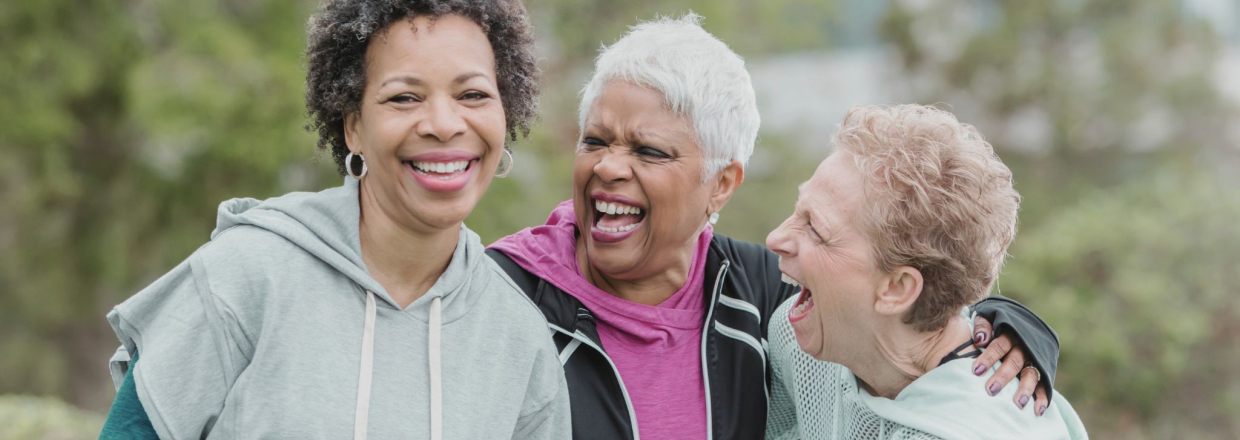The menopause marks the permanent end of menstruation. For most women, it happens naturally between the ages of 45 and 55, but around 1 in 100 experience it before the age of 40 (Menopause Charity, 2021). While menopause is a natural stage of life, it often brings changes that many women don’t expect.
Alongside well-known symptoms such as hot flushes, mood changes, and sleep disturbances, the musculoskeletal (MSK) system — your bones, muscles, and joints — can also be affected. These changes can influence how your body feels, moves, and recovers.
Causes of the menopause
There are three main ways menopause can occur:
Natural
This happens when ovarian activity gradually declines, leading to the final menstrual period. Natural menopause is only confirmed when a person has gone 12 consecutive months without menstruation, without any other medical cause.
Induced
This follows medical intervention such as the surgical removal of both ovaries (with or without hysterectomy), chemotherapy, or radiation therapy. In these cases, menopause occurs suddenly and can be timed precisely.
Premature or early
When menopause happens before the age of 45 it is considered early, and before 40 it is classed as premature. This is not the same as perimenopause, which is the transition phase leading up to menopause.
Stages of the menopause
Menopause isn’t a single event but a transition with three key stages:
Perimenopause: The period leading up to menopause when hormone levels fluctuate and symptoms begin, lasting until 12 months after the final menstrual period.
Menopause: The final menstrual period itself.
Post-menopause: The time after the final menstrual period, confirmed once 12 months have passed without menstruation.
How menopause affects bones, muscles, and joints
Falling oestrogen levels can have a big impact on MSK health. Physiotherapists often see women experiencing:
Bone health changes: Lower oestrogen reduces bone density, increasing the risk of osteopenia and osteoporosis. This makes bones more fragile and more prone to fractures.
Joint pain and stiffness: Hormonal changes, and sometimes reduced physical activity, can lead to stiff or aching joints.
Muscle strength decline: Oestrogen helps maintain muscle mass, so strength and endurance often fall during menopause. Everyday activities like lifting, carrying, or climbing stairs may feel more tiring. Research suggests muscle mass decreases by around 6% from the age of 50, with an additional 1% lost per year around menopause.
Tendon and soft tissue changes: Collagen production also declines, which can increase the risk of tendinopathy (conditions affecting the tendons). Shoulder pain, tennis elbow, or Achilles issues are more common in this stage of life.
Why movement matters during menopause
The good news is that exercise and physiotherapy can play a powerful role in protecting your MSK health. Staying active helps reduce symptoms, improve mobility, and support long-term wellbeing.
- Strength training: Maintains both muscle and bone strength.
- Weight-bearing exercise: Activities like walking, dancing, or light jogging support bone health.
- Flexibility and mobility work: Keeps joints moving and reduces stiffness.
- Balance training: Lowers the risk of falls and fractures.
How physiotherapy can help
Physiotherapists can provide tailored support to help you move with confidence during and after menopause. They can:
- Assess your bone, joint, and muscle health
- Design a personalised exercise programme to suit your needs and lifestyle
- Teach safe strength and balance exercises
- Support you in managing pain and stiffness
If you are looking for obstetrics related physiotherapy (antenatal or postnatal care) please call our customers services helpline (0330 678 0850) for a remote initial assessment with one of our specialist trained therapists. They will assess your symptoms virtually and ensure you continue your treatment with the most appropriate therapist for your needs.
Please note we cannot support the following conditions:
- Caesarean section – scar site management advice
- Sexual Dysfunction – vaginismus/dyspareunia
- Transgender care
- Perineal tears
Staying active through menopause
Menopause may bring challenges to your bones, muscles, and joints, but it doesn’t have to slow you down. With the right advice, regular movement, and physiotherapy support, you can stay strong, active, and confident in your body.
If you’re experiencing new aches, pains, or concerns around menopause and movement, our team is here to help. One of our specialist-trained therapists will carry out a remote initial assessment to understand your needs and make sure you continue your treatment with the most appropriate physiotherapist for your recovery.
